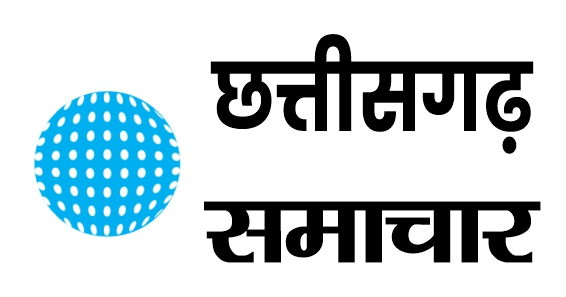Yash Vardhan Singh Roy is pursuing final year International LLB and Globalisation from University of Birmingham, London, UK. He is the Vice-president of ELSA Birmingham which is a law organisation in England. Earlier,he was a Legal Analyst at Ola. Also, he has recently completed a virtual experience with Bright Network UK in the field of Commercial Law. Anubhuti Bhusari interacts with him:
- What motivated you to choose law?
The decision was taken in the year 2016, I was doing a completely different course at that time and I wasn’t inclined to law initially as I wanted to do B.Sc. Chemistry and get into the research field. However, I realised that I was getting into something that didn’t interest me because the Chemistry that I had learnt in school and that I was learning in college was completely different and my love for that was based on what I had studied in school, so that’s something I resonate with, if I don’t like something that I love then I won’t pursue it, that’s natural. Also, I’m the 4th generation in my family not directly but indirectly who is pursuing law.
- Being an Indian studying in England, did you face any sort of discrimination in the UK?
Honestly, not really. For that matter I’m in a city that has a lot of South-Asian population viz., Indians, Pakistanis and Bangladeshis. The perception of Indians in U.K. is very different, they probably look at you as who can help their economy and country grow as a whole. They also do understand the importance of an Indian brain that can add value to their country. For that matter, I’ve travelled around the country and worked at different cities but never faced any sort of racism.
- You’ve completed your schooling from India. So you have a background of an Indian based education as you have studied history, political science of India. While, there might be students who’ve studied in U.K. and are familiar with their education system. So did you face any difficulty adapting to the new education system there?
See, the reason why I choose to study law in U.K. was because the skeleton of Indian and British legal system are pretty similar. The concept of common law is same under both these systems. Yes, the teaching pattern and the structure of courses differs obviously. The way we are taught in our high schools in terms of subjective and non-subjective is different than in U.K. , but at the same time they give you time and space to adapt to their system and I think as we are adapted to study in a particular way in India, it helps to study in U.K. as well. Once you are ready to give subjective answers you know how to go around with your presentation or an essay that you have to write or a research paper. So, I think the structure and manner in which you are taught in India helps to imbibe with the system in U.K.
- What are the career prospects for students who are pursuing law in India rather than in England?
So, it depends on what type of law you want to get into. For example, if you want to become a solicitor in U.K., there are a lot of opportunities. However, the process is a lengthy one. You will have to first do a conversion course or a degree that is recognised by the U.K. So, if you’re doing your LL.B here and LLM from U.K., you’ll have to give a separate exam to be a solicitor. So it all comes down to the fact how you want to see yourself in the next five years. The reason why I moved out was because I’m not a person who appreciates or likes litigation the way others do. I feel the system is very archaic. I’m inclined towards arbitration and mediation and U.K. is a country that practises it the most as compared to India, so that is the reason why I choose U.K. However, opportunities are there. You’ve firms coming to India to recruit students from NLU’s and other private colleges. You can also do summer schools in U.K. and get you base ready and whenever you want to shift for LLM or a job it would help. With the immigration process changing in the next few years, opportunities are going to be even more. A new graduate recruitment scheme has come in for all international students giving you two years to stay in the U.K. after you have done your graduation degree despite of the fact if you’ve done a job or not. So, there are numerous opportunities it all depends on how you do your research about it, how you get to know about it and how motivated you are.
- You are the Vice President of ELSA Birmingham, please share your experience with the organisation and how did you get associated with it?
ELSA is the largest law body in all of Europe. It’s network is spread in most European nations. So, my friend and I were aware about ELSA since our first year but we didn’t really had any chapter of it in our university. At first, we started going to the events that ELSA organises in London and other neighbouring countries. ELSA organises various summer schools, events and international meetings. They also have delegations to UN, Human Rights council, so we started going through these opportunities and we got to know more about ELSA. Furthermore, our professors were also associated with ELSA, so we spoke to them and got ELSA set up in our university in my 2nd year and 3rd year I took up the role of being the Vice-President. So, it has been an amazing experience meeting people all across the Europe, going to these events and understanding how European model of law works and how people use this model to get into European Parliament. It is a pretty massive networking group that exists and we are trying to expand it slowly towards the SouthEast and Latin America.
- What are the legal associations an Indian law student can associate themselves with in U.K.?
U.K. has a lot of legal associations like Legal Cheeks, Bright Network and TargetJobs. These are independent private organisations that have their own blogs and offer recruitments. They offer student programs for anyone and anywhere around the globe. So they have networking events overseas via video calls now since we are in an environment where this can happen only through virtual platforms. It is the best time now to reach out to these organisations and know more about them. These organisations are nowadays organising various week long events on different domains like Commercial Law, Criminal Justice, Tort law etc. So it exits it all comes down how you research about them and are getting yourself into it. If someone doesn’t see themselves in U.K. in the next few years then of course they won’t do it. Like, I’m part of a leadership scheme in Legal Cheeks, I had around 100 students from Indian background as it is something that they see as an interesting opportunity to put it up on their profile as they give you a certificate that adds up to CV. There is also London Court of Arbitration Centres where they see opportunities for themselves.
- In hard times like COVID-19 how are you staying motivated? Has it affected you and your productivity?
Firstly, I’d like to say that since we are in such a pandemic, I don’t think so this is the time to be productive because this is not a productivity contest as to who’s doing how much work and how is someone being useful. I feel that if someone wants to focus on learning an instrument and not focusing on their career, I think that is a productive work. I know a lot of people might not think this way but for me it is not a productivity contest, it is just about you being safe mentally and physically. I understand how restless one can get sitting at home for a span of 90-100 days and doing nothing but at the same time I also appreciate the time that I can spend with my family as my family is around. Yes, it has been very challenging and I have had few losses in my family because of the pandemic but then you deal with this in a positive way and move ahead. Coming back to the professional side, yes I have tried to keep myself engaged with a lot of certificate and online courses but I think I don’t look at as that as everyone else is doing something so I shall too, it is just something that I do to hone my own craft. But at the same time I enjoy quality time with my family because I don’t know if I will be able to get this opportunity again in future. I foresee that many people are going to come out when things get normal and do the 9-6 job and get in the rat race again. So, I am just very grateful that I am able to spend quality time with my family and able to do things that I enjoy doing. It is very important to appreciate and nourish what you have.
- In this era, social media has become an important part of our lives. People are often seen validating their success in life, based on the number of followers, friends, views and bank balance.What is your opinion on this?
Firstly, I’m on social media, I won’t deny that but it is not that it is a very important part of my life primarily because people who are on social media have forgotten to distinguish between the virtual world and reality. So even if someone is not on social media, I still feel you are able to connect to the world by reading a lot of current affairs. You always have the newspaper, books, apps on your phone to stay connected to hone your craft and knowledge. It is to reach on its own. People are moving a lot towards it, but even if someone is not on social media they can still be connected to the world. Also, not necessarily having a lot of followers, influencers or credibility on social media means it gives you the mileage.
- What will be your advice to the budding lawyers?
Firstly, if you are thinking about studying law irrespective of which country you are targeting it is important to be focused, honest and diligent with your work. If you are not honest with the work you are presenting with, people are not going to respect you back. Secondly, any stream or subject of law is humongous, so the results will not show immediately. But if you are focused and if you are at it, with time results will show up and just enjoy more than anything because it is college life that you are presented with and even if it is law you cannot study all the time, it is important to work hard but do make the most of your college life!
Interview by – Anubhuti Bhusari









